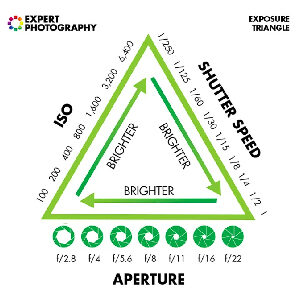The Wonder and Art of Taking Perfect Photos

In the last few years, the advancement of technology in cameras has been phenomenal. Whether it’s integrating storage, adding more variety of lenses, or increasing photo resolution, there are now better ways to snap better photographs.
On the surface, it can be overwhelming to go through hundreds of technicalities to get a picture right. But there is no need to dive into endless online resources to master the art of photography. You’d be surprised how normal it is for people to take average and dull pictures.
So, What Does it Take to Take the Photos like a Professional?
Tim Shields, the MPI winner, and Photography Academy founder profess that it just takes a few elements to snap the most beautiful pictures. Once you figure out those aspects of photography, people will be in awe of your photos. With the advent of tech innovations and dynamic approaches, it takes some degree of training to understand the basics of photography.
Let’s take a look at some photography tips in line with the professional recommendations of Tim Shields:
 Master Framing
Master Framing
The last thing you want to do is overlook the framing of your shot. Framing requires a creative approach that allows you to compose and frame the shots. Remember that framing is an essential aspect of composing a shot. In a perfect frame, there should be no unwanted objects or subjects.
Avoid the Digital Zoom
It is natural for an amateur photographer to get close to observe the subject better. But zooming in prior to taking the photo should not even be the last resort. In fact, zooming has never been a solution to taking the best photos. And that’s because digital zoom shots render resized and cropped images.
Not to mention, a digital zoom shot is bound to result in a grainy image as well as reduced resolution. Digital zoom leaves you with a much inferior shot of the surroundings and makes hand vibrations worse.
For the sake of the shot, minimize the use of a digital zoom altogether. Instead, use a telephoto lens so that you can capture long-focus shots with all the subjects and objects within the frame. What’s interesting is that these lenses also extend the pathway of light.
Leverage Light
 When it comes to creating flawless photos, it’s all about “how” you play around with the light. As a photographer, always try to find several sources of light to illuminate the subject. From indoor lights to sunlight to candlelight, make the best uses of different lights to improve the mood of your picture.
When it comes to creating flawless photos, it’s all about “how” you play around with the light. As a photographer, always try to find several sources of light to illuminate the subject. From indoor lights to sunlight to candlelight, make the best uses of different lights to improve the mood of your picture.
Like cinematography, take advantage of natural light to render a successful image. Ultimately, the darkness, brightness, and tone of the shot boil down to lighting. Similarly, lighting has a direct impact on the atmosphere and mood of a shot. So, manipulate and control the light to get the best vibrancy, colour, luminosity, and vibrancy of the subjects in the shot.
Remote Shutter
You may be incredibly careful and still cause vibrations when you take the shot. When it comes to taking long-exposure photographs, it makes complete sense to switch to a remote shutter. If you’re into night photography and long exposures, then a remote shutter will improve your photography technique.
Use a Proper Tripod
If you want a steady shot – you will have to use a good tripod. And instead of buying a $15 tripod, get a multi-purpose and sturdy tripod to take killer skyline and sunset images without a hint of blurriness. When it comes to photography, one of the first things you should get familiar with is the different use cases of a tripod under different conditions. With a great tripod, you will be able to frame the shot with more confidence.
Final Thoughts
Your approach to photography should not depend on getting the most expensive camera. Of course, a high-end camera will get you a crisp and clear image with added features. But “expensive” does not translate into “quality” images. You have to navigate the light, understand basic composition, experiment with exposure, and ensure personalized settings to take the best shots.
In hindsight, follow the lead of pro photographers like Tim Shield who understand it takes a simplified approach to take the best photos. You can check out his book and participate in the event to learn more about how to take incredible photos without having professional background.







Responses